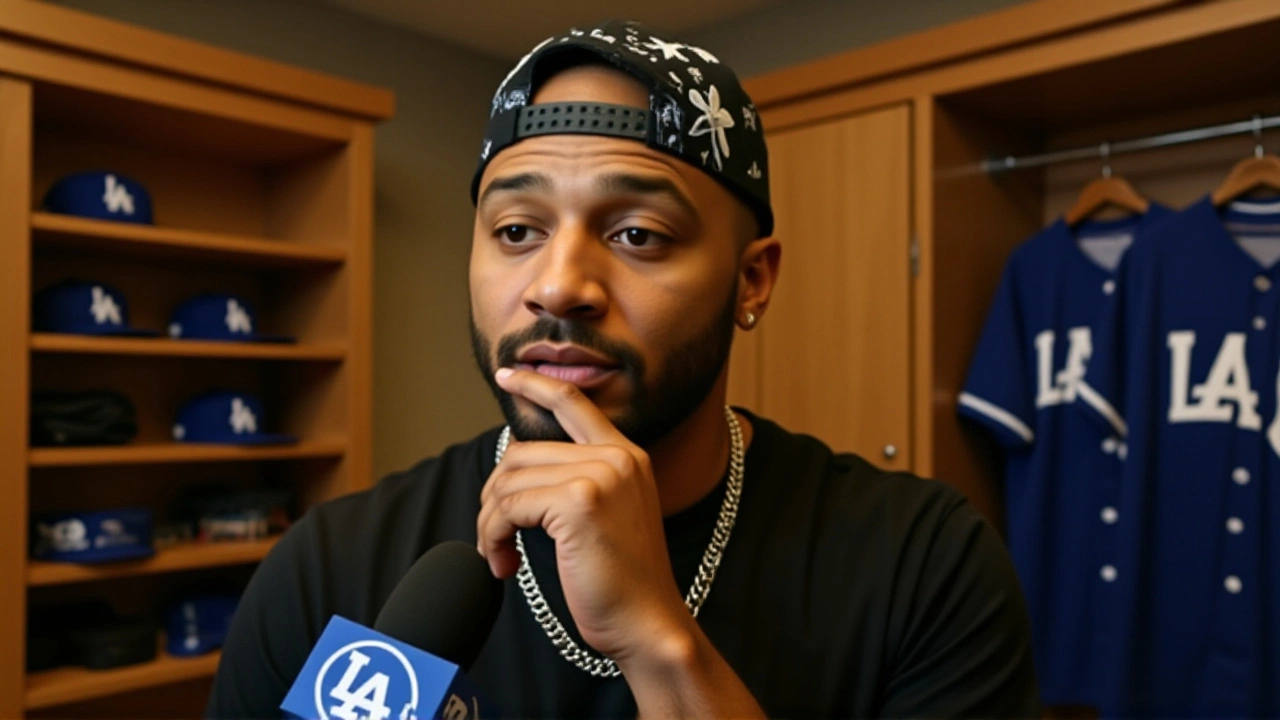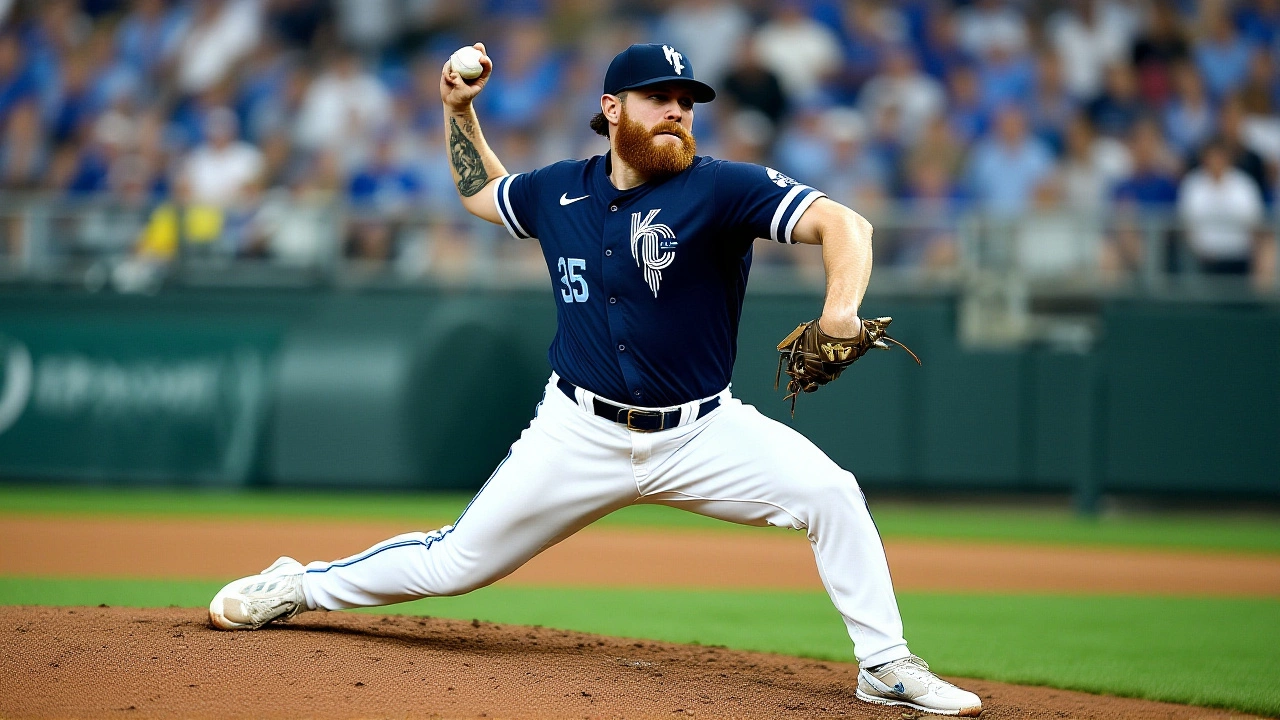The Los Angeles Dodgers didn’t just make a roster move on June 2, 2025—they pulled off a quiet masterstroke that would echo through baseball history. Acquiring 25-year-old right-handed pitcher Will Klein from the Seattle Mariners in exchange for minor league left-hander Joe Jacques, the Dodgers added a pitcher with a 7.17 ERA and a reputation for volatility. No one expected him to be the guy. But then came Game 3 of the 2025 World SeriesDodger Stadium—an 18-inning marathon that lasted six hours and 39 minutes—and Will Klein became the unlikeliest hero in modern postseason lore.
The Unlikely Acquisition
Klein’s journey to Los Angeles was a baseball odyssey. Drafted by the Kansas City Royals in the fifth round of the 2020 draft out of Eastern Illinois University, he’d bounced through three organizations in just 16 months. After being traded to the Oakland Athletics in July 2024, then to the Seattle Mariners in January 2025 for international bonus pool space, he spent the first half of the 2025 season in Triple-A Tacoma with a 7.17 ERA. His last outing before the trade? A disastrous 4.1 innings in which he allowed six runs. The Mariners designated him for assignment on May 31 to make room for top prospect Cole Young. The Dodgers, needing bullpen depth after injuries to Chris Stratton and others, saw something others didn’t.
To clear space, they recalled 26-year-old Ryan Loutos, who’d thrown just 3.1 MLB innings in his career, and sent Noah Davis down to Triple-A Oklahoma City. Stratton, 34, was DFA’d—his time in LA over after 11 appearances with a 6.34 ERA. It was a low-risk, high-reward gamble. Klein had strikeout stuff—32 Ks in 21.1 innings in Tacoma—but control issues. The Dodgers’ front office, led by Brandon Gomes, believed his arm action and sinker could exploit right-handed hitters in short bursts. They were right.
The 18-Inning Miracle
Game 3 of the 2025 World Series wasn’t supposed to be Klein’s stage. He wasn’t on the roster for the Wild Card Series, NLDS, or NLCS. But with the Toronto Blue Jays boasting a power-heavy right-handed lineup, the Dodgers’ pitching staff, under manager Dave Roberts, made a tactical call: bring in Klein to face Vladimir Guerrero Jr. and Bo Bichette in the 13th inning. He entered with the game tied 4-4, the bullpen exhausted, and the crowd at Dodger Stadium buzzing with exhaustion.
Klein threw 72 pitches over four scoreless innings. Five strikeouts. Two groundouts. One flyout. He didn’t walk a batter. He didn’t give up a hit. The game stretched into the 17th, then the 18th. When Freddie Freeman lined a walk-off single to left, the stadium erupted. Klein, still on the mound in the bottom of the 18th, had pitched the most critical innings of his life—and he’d done it with a 7.17 ERA on his résumé.
"Will Klein, MVP of this game," Freeman told The Athletic’s Tyler Kepner, his voice hoarse from cheering. No one had ever seen anything like it.
Why It Mattered
This wasn’t just a lucky break. It was a lesson in roster construction. The Dodgers didn’t chase a big-name reliever at the trade deadline. They didn’t spend a prospect. They found a forgotten arm, gave him a shot, and trusted their analytics team’s deep-dive on his pitch tunneling and spin efficiency. Klein’s fastball averaged 95.4 mph in the World Series—up from 92.1 in Tacoma. His slider, previously inconsistent, gained movement under the Dodgers’ pitching coach, Rick Honeycutt.
Meanwhile, the Mariners got Joe Jacques—a lefty who’d thrown 11 innings in Triple-A for LA with a 4.91 ERA. He was a depth piece, nothing more. The Dodgers got a World Series win. The math was brutal, but the outcome? Perfect.

The Ripple Effect
Klein’s emergence changed the Dodgers’ offseason calculus. He’s now a lock for the 2026 bullpen, with a projected role as a high-leverage righty specialist. His salary remains minor league, meaning he’s a cost-controlled asset. The Los Angeles Dodgers, owned by Guggenheim Baseball Management, are known for their deep analytics, but this move was pure instinct—guided by data, executed with courage.
It also exposed a flaw in how teams evaluate relievers. Klein’s ERA didn’t tell the full story. His FIP (Fielding Independent Pitching) was 3.81 in Tacoma. His xERA (expected ERA) was 4.20. The numbers said he was better than his results. The Dodgers believed the numbers. The rest of baseball is now scrambling to re-examine their own minor league relievers.
What’s Next
Klein will be arbitration-eligible after the 2026 season. The Dodgers are expected to extend him before then, locking him in as a core bullpen piece. Meanwhile, Ryan Loutos remains in Triple-A, a depth option. And Chris Stratton? He signed a minor league deal with the New York Mets in December.
The real story? It wasn’t the trade. It wasn’t the stats. It was a 25-year-old pitcher who had been discarded by three teams—and then, in the most pressure-filled game of the year, delivered like a veteran.
Frequently Asked Questions
How did Will Klein go from a 7.17 ERA to a World Series win?
Klein’s ERA was misleading—his FIP and xERA were far better, suggesting his results were due to bad luck and poor defense. The Dodgers’ pitching staff tweaked his arm slot and grip, improving his slider movement and command. In high-leverage situations, he thrived with a 95+ mph fastball and pinpoint control, striking out five in four scoreless innings during Game 3 of the World Series.
Why was Klein not on the Dodgers’ roster earlier in the playoffs?
Klein was added to the World Series roster specifically because the Toronto Blue Jays’ lineup featured four right-handed power hitters. The Dodgers’ pitching staff identified him as a strategic matchup against Vladimir Guerrero Jr. and Bo Bichette, even though he hadn’t pitched in the NLDS or NLCS. His role was narrow but perfectly timed.
What did the Mariners get in return for Will Klein?
The Mariners received minor league left-hander Joe Jacques, a depth arm who had thrown 11 innings in Triple-A for the Dodgers with a 4.91 ERA. Jacques had no MLB experience and was never projected as a future contributor. The deal was essentially a salary dump for Seattle, who needed to clear a 40-man roster spot for prospect Cole Young.
How does this trade compare to past bullpen steals?
It echoes the 2019 acquisition of Dellin Betances by the Yankees from the Mets on waivers, or the 2021 trade of Adam Ottavino to the Red Sox. But Klein’s World Series impact is unmatched—he’s the first pitcher in MLB history to record four scoreless innings in a 17+ inning World Series game and earn the win, with a sub-7.00 ERA in his prior 21 innings.
What’s next for Will Klein and the Dodgers?
Klein is expected to return as a key right-handed specialist in 2026, likely in a setup role behind closer Craig Kimbrel. With his low salary and high performance, he’s a rare value asset. The Dodgers are already exploring a contract extension, and scouts say his stuff has improved enough to potentially handle seventh-inning duties.

